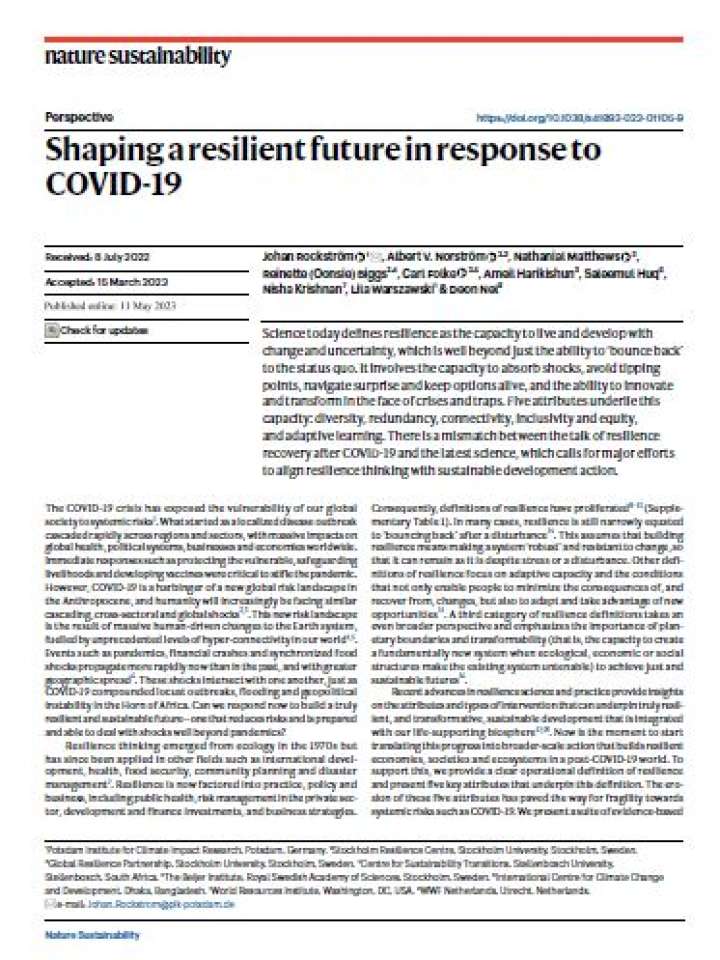Shaping a resilient future in response to COVID-19
The paper argues that navigating the twenty-first century requires a fundamental reboot of the logic for economic progress and human development, away from a dominant belief in efficiency and optimization, to recognizing the importance of diversity and redundancy that spreads risks and increases capacities to deal with rising turbulence and uncertainty. In short, investing in social and environmental buffers, ranging from emergency stockpiles of medical equipment and means of producing food to diverse energy sources, and safeguarding capacities in nature to withstand stress and shocks.
Resilience research provides evidence that equity is central to building societies able to navigate turbulence and change. The experience from COVID-19, where vulnerable and marginalized groups have been disproportionately impacted, strengthens this evidence. The magnitude and severity of clusters of infection, mortality rates and ability to recover after the health crisis are all determined by the ability of societies to support the most vulnerable citizens. This equity aspect also requires a systemic shift in the global resilience research arena towards the Global South. Interestingly, evidence is emerging that poor communities may have resilience lessons to offer wealthier parts of societies in the handling of COVID-19. For example, despite high numbers of infections and severe economic hardships, COVID-19 has revealed an Africa characterized by resilience rather than collapse and conflict75. African countries effectively mobilized community health workers and communities to extend the reach, capacity and quality of their health systems
Explore further

